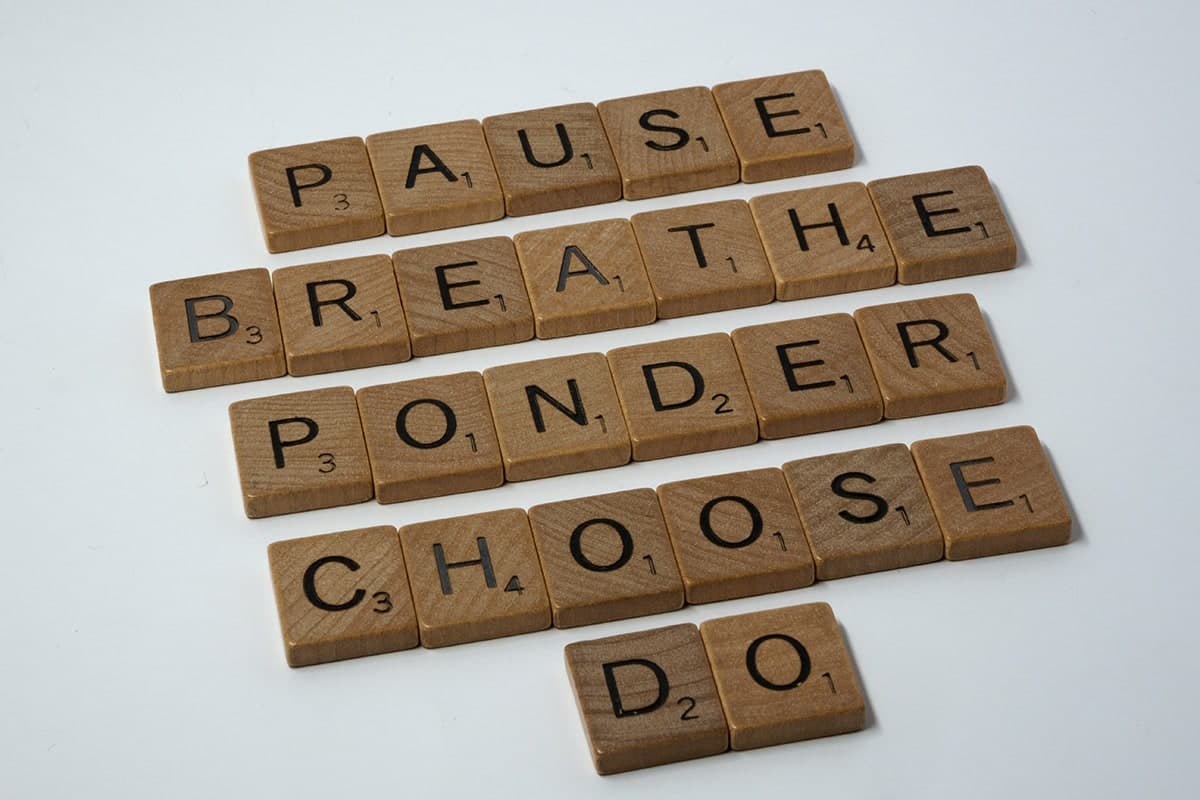Anxiety and panic attacks are Dread. Terror. Anxiety. Panic. They are all based on fear — in and of itself a very important and useful emotion.
Fear has kept humans safe for millennia by warning us of immediate danger, making us more careful and getting us into fight-or-flight mode when necessary.
There’s also overwhelming, even crippling fear that can express itself through anxiety or panic attacks. Those terms are used interchangeably by most people as both types of attacks share a lot of similar symptoms.
Anxiety and panic attacks are often misunderstood, though, even by those who suffer from them.
This blog post will explore their differences and how to distinguish one from the other through knowing the signs and symptoms.
We will also look at treatment options for anxiety and panic attacks and some simple methods on how to relax the mind.
What is a panic attack?
1 in 3 people will experience a panic attack at some point in their lives, say researchers. Once someone has had a panic attack they are more prone to having one again. The fear of having to experience another panic attack can end up triggering one, creating a vicious cycle.
A panic attack doesn’t need a specific trigger. It can come on very suddenly, without any particular reason and therefore completely out of the blue. Panic attacks can even happen when we’re asleep.They are characterised by an intense, overwhelming, even immobilising feeling and mental state of fear. The terror that’s being experienced is in no relation or at least unproportional to what’s happening around that person.
A panic attack peaks within minutes, subsides as quickly as it comes on and doesn’t usually last longer than 15 to 30 minutes. That being said, very few people have back-to-back panic attacks that can make it seem as if the attack is lasting much longer because it’s hard to distinguish when one ends and the next one starts.
People who experience panic attacks describe that they feel as if they were losing control over their body, like they might be having a heart attack or even like they’re about to die and often struggle to breathe. If someone suffers from reucrring panic attacks that happen without them being in actual danger they might have a so-called panic disorder.
What is an anxiety attack?
Fear is, as mentioned above, a natural and useful response to a dangerous situation like when we are being attacked by a ferocious animal or another human that wants to harm us or a fire for example. It can also be a response to a perceived threat like public speaking, a job interview, an exam or a social event.
Anxiety is mostly used to describe fear rooted in the thought of a threat. It is future oriented, meaning it’s not actually happening in the here and now and might, in fact, never come to happen.
Anxiety is basically caused by excessive overthinking, worrying and general stress or a high-pressure situation. The latter could be a death of a loved one or being the main bread winner of the family and losing your job or just everyday life circumstances regarding children/family, work, finances or health.
A so-called anxiety attack is an episode where the intense worries that fill the individual with a sense of unease, dread or fear ranging from mild to severe become so overwhelming they can trigger physical symptoms.
Anxiety can build up over days, weeks or even months before the person experiencing it reaches a breaking point. In that sense, they are more predictable than panic attacks that strike all of a sudden and for no apparent reason.
This can lead a person who suffers from anxiety attacks to start trying to avoid situations that tend to trigger them. The life choices that feel “safe” to them might become rather limited as a result or their anxiety might even end up stopping them from living the life they used to enjoy.

The symptoms
Do you recognise them?
When at least four of the listed symptoms below are being experienced you’re having a panic attack. These symptoms, especially as they would overwhelm you so suddenly and for no apparent reason, can be extremely frightening but are in and of themselves not dangerous.
You might feel like you’re dying but you won’t. Nothing harmful is actually happening to or within you – even though it feels that way. If you manage to keep yourself present in the moment (maybe with the help of a trusted person nearby) rather than trying to distract yourself, you will find that nothing bad is happening and the symptoms subside within minutes.
For some people, panic attacks are a one-off event, others suffer them more often.
-
Fear of going crazy or losing control
-
Fear of dying
-
Heart palpitations, accelerated heart rate or pounding heart
-
Feelings of choking
-
Discomfort or pain in your chest
-
Feeling as if you’re being smothered, struggling to breathe
-
Feeling faint, dizzy, light-headed or unsteady on your feet
-
Nausea/feeling sick or experiencing abdominal distress
-
Excessive sweating
-
Chills or hot flashes
-
Shaking or trembling
-
Tingling sensations or numbness in your arms and legs
-
Feeling detached from yourself/surroundings or feeling you’re losing sense of reality
The symptoms of an anxiety attack are usually less intense than those of a panic attack but they can last up to several hours. They include the following.
-
Chest or muscle pain or tension
-
Stomach cramps
-
Extreme fear, worry or distress
-
Rapid heartrate
-
Shortness of breath
-
Feeling you’re being choked or smothered
-
Pain or numbness in your extremities
-
Irritability or getting easily startled
-
Dizziness, light-headedness or shakiness
-
Dry mouth
-
Restlessness
-
Loss of concentration or going blank
-
Fatigue and/or trouble sleeping
-
Feeling exhausted or helpless
-
Headache
-
Experiencing flashbacks
-
Worrisome thoughts becoming unmanageble
How anxiety attacks play out and are being experienced very much depends on the individual. Someone can have cognitive symptoms without physical symptoms or vice versa as well as a combination of both.
Discover an interesting article about anxiety and panic attacks.

What’s the difference between anxiety and panic attacks?
In many regards anxiety and panic attacks are very similar, yet there are some distinctive differences:
-
Anxiety attacks build up gradually whereas panic attacks come on very suddenly and often completely out of the blue. The latter can occur without a trigger. The former is usually the response to a perceived threat.
-
Panic attacks peak within minutes and only last between 15 – 30 minutes whereas anxiety attacks can last for several hours or even days.
-
Panic attacks are often more intense than anxiety attacks.
How can we help at NLP
One of the best ways to approach panic and anxiety attacks is mindfulness. When you are in the throes of an attack it is the most natural thing that all you want is for it to be over, to stop, to rid yourself of those intense feelings of fear and dread.
Not the only but the best way out is through. Don’t be critical of yourself. Don’t give yourself a hard time. You are human. Your nervous system is only trying to protect you. Observe, notice but don’t lose yourself in the stories your mind comes up with. You want to ride the attack out while staying as present with yourself and conscious of your surroundings as possible.
Try to accept the anxiety, the fear and every symptom they bring with them to the best of your abilities. You will find that this eases the experience much more than trying to fight it. The latter would actually make it worse.
Remember to breathe. You can control your nervous system by breathing slowly and deeply – in through the nose, out through the mouth. Focus your attention on your inhale and exhale until the symptoms subside.
It can also help to share your anxiety or fear with someone you trust and who you know won’t judge you. They can help you stay grounded in the present moment and might be able to provide a different perspective on the story/ies than the one(s) you’re caught up in in that moment.
Therapy, a healthy diet and balanced meals as well as enough sleep and daily exercise alongside practicing yoga and meditation can all help to reduce the number of future anxiety or panic attacks.
At New Life Portugal we offer a wide range of therapeutic elements that are rarely found all in one place. Our unique programs for people who struggle with anxiety, depression, stress, burnout, are simply looking to create a healthier lifestyle or need a place that offers absolute peace and tranquility to recharge their batteries and find some clarity.
They can all be adjusted to your individual needs and include meditation, yoga, mindfulness practice, counselling and life coaching, personal training, workshops, the restorative benefits of being in nature, and a supportive community.